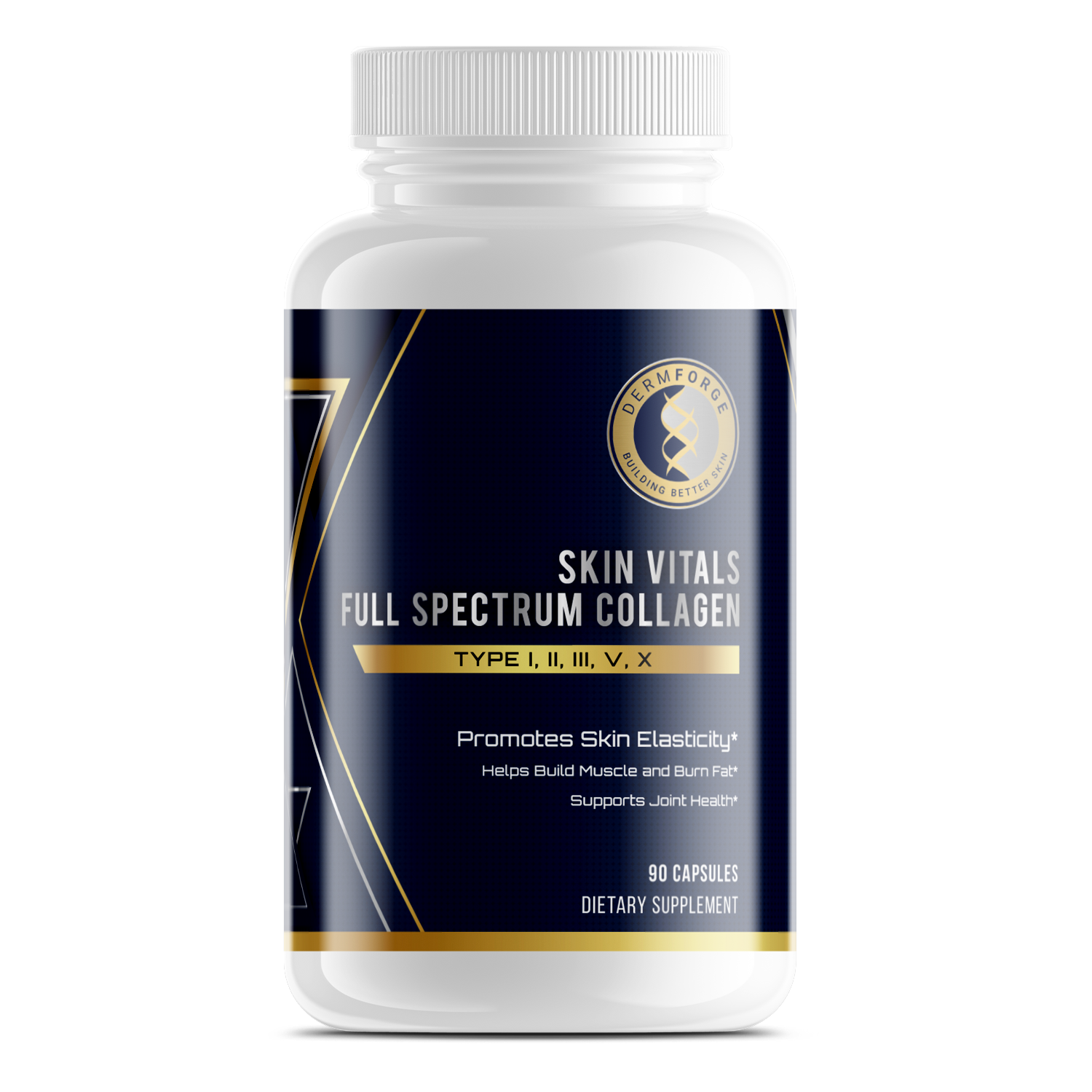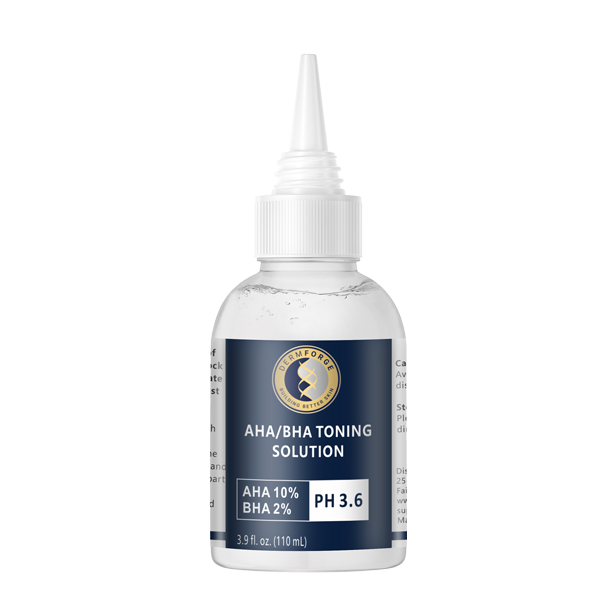Vitamin C serum is a popular skincare product known for its brightening and anti-aging benefits. However, not all serums work the same way. Choosing the right vitamin C serum depends on factors like concentration, formulation, and your skin type. Understanding these elements helps you find a product that meets your specific needs.
Different forms of vitamin C vary in stability and effectiveness. Some serums contain additional ingredients like ferulic acid or hyaluronic acid to boost results. However, selecting the wrong formula can lead to irritation or reduced benefits. Paying attention to ingredients ensures you get the most out of your serum.
Additionally, how you use Vitamin C Brightening Serum impacts its effectiveness. Applying it in the morning with sunscreen protects against environmental damage. However, combining it with certain ingredients, like retinol, can cause irritation. A well-balanced routine helps maximize results without compromising your skin’s health.
Your skin type also plays a role in how vitamin C interacts with your complexion. Oily skin benefits from lightweight formulas, while dry skin may need extra hydration. Sensitive skin requires gentler formulations to avoid irritation. By considering these factors, you can choose a serum that delivers the best results for your skin.
What is Vitamin C Serum and How Does It Benefit Your Skin?
Vitamin C serum is a topical skincare products renowned for its multiple benefits. As an antioxidant, it protects your skin from environmental damage caused by free radicals. This protection helps prevent premature aging and maintains a youthful appearance. Additionally, vitamin C plays a crucial role in collagen production, which is essential for skin elasticity and firmness.
By stimulating collagen synthesis, it helps reduce the appearance of fine lines and wrinkles, contributing to smoother skin. Moreover, vitamin C inhibits melanin production, leading to a brighter complexion and the fading of dark spots and hyperpigmentation. Understanding these benefits is vital when choosing the right vitamin C serum for your skincare routine.
Incorporating a well-formulated vitamin C serum can enhance your skin's overall health and radiance. However, it's important to select a product suitable for your skin type to maximize these advantages. Regular use can result in noticeable improvements, making vitamin C serum a valuable addition to your daily regimen.
Types of Vitamin C in Skincare: Which One is Best?
Vitamin C serums are available in various forms, each with unique properties and benefits. L-ascorbic acid, the purest form of vitamin C, is renowned for its potency in brightening skin and stimulating collagen production. However, it is unstable and can degrade quickly when exposed to light and air. Therefore, products containing L-ascorbic acid often require careful storage to maintain their effectiveness.
For those with sensitive skin, sodium ascorbyl phosphate offers a gentler alternative. This water-soluble derivative provides antioxidant benefits and is less likely to cause irritation. Additionally, it has antimicrobial properties, making it beneficial for acne-prone skin. However, it may not be as potent in collagen synthesis as L-ascorbic acid.
Magnesium ascorbyl phosphate is another stable, water-soluble derivative suitable for various skin types. It is effective in brightening the skin and promoting hydration. Moreover, it supports collagen production, contributing to firmer skin. However, its efficiency may be lower compared to L-ascorbic acid.
When choosing the right vitamin C serum, consider your skin type and concerns. Pure L-ascorbic acid may offer the most significant benefits for those seeking potent results. However, if you have sensitive skin, derivatives like sodium ascorbyl phosphate or magnesium ascorbyl phosphate might be more suitable. Additionally, pay attention to product formulation and packaging to ensure stability and efficacy. By selecting the appropriate form of vitamin C, you can enhance your skincare routine and achieve desired results.
Understanding Concentration Levels: Finding the Right Strength
When choosing the right vitamin C serum, understanding concentration levels is essential. Vitamin C serums typically range from 5% to 20% in concentration. Lower concentrations, around 5% to 10%, are suitable for sensitive or dry skin. They provide antioxidant benefits with minimal risk of irritation. Starting with a lower concentration allows your skin to build tolerance gradually. As your skin adapts, you can consider increasing the concentration.
For normal skin types, a concentration between 10% and 15% is often effective. This range offers a balance between efficacy and tolerability. It addresses common concerns like dullness and uneven skin tone. However, monitor your skin's response to adjust usage as needed. If you experience irritation, reduce the frequency of application. Alternatively, opt for a lower concentration.
Individuals with oily or acne-prone skin may benefit from higher concentrations, up to 20%. These potent formulations can help reduce excess oil and fade acne scars. However, higher concentrations increase the risk of irritation. Therefore, it's advisable to introduce them gradually. Additionally, always perform a patch test before full application. This precaution helps prevent adverse reactions.
In summary, selecting the appropriate vitamin C concentration depends on your skin type and sensitivity. Starting with a lower concentration allows your skin to adjust. As tolerance builds, you can increase the strength to achieve desired results. By carefully choosing the concentration, you can effectively incorporate vitamin C into your skincare routine. This approach ensures maximum benefits while minimizing potential irritation.
Key Ingredients to Look for in a Vitamin C Serum
When choosing the right vitamin C serum, it's beneficial to consider additional ingredients that enhance its stability and effectiveness. Combining vitamin C with vitamin E and ferulic acid can significantly boost its performance. Vitamin E works synergistically with vitamin C, enhancing its antioxidant properties and providing increased protection against environmental damage. Ferulic acid further stabilizes this combination, improving the serum's efficacy and extending its shelf life.
Additionally, incorporating hyaluronic acid into a vitamin C serum can offer substantial hydration benefits. Hyaluronic acid is known for its ability to retain moisture, keeping your skin plump and hydrated. When paired with vitamin C, it not only moisturizes but also enhances the serum's ability to reduce the appearance of fine lines and wrinkles. This combination can lead to a more youthful and radiant complexion.
Furthermore, some serums include peptides and ceramides, which support skin structure and barrier function. Peptides can stimulate collagen production, complementing vitamin C's role in maintaining skin firmness. Ceramides help restore the skin barrier, preventing moisture loss and enhancing overall skin health. By selecting a serum that combines these ingredients, you can maximize the benefits of vitamin C and address multiple skin concerns effectively.
How to Incorporate Vitamin C Serum into Your Skincare Routine
Incorporating vitamin C serum into your skincare routine can enhance your skin's radiance and protect against environmental damage. To maximize its benefits, apply the serum after cleansing and toning, but before moisturizing. This sequence ensures optimal absorption. Typically, using vitamin C serum in the morning provides antioxidant protection throughout the day. However, if you have sensitive skin, consider applying it at night to minimize potential irritation.
When layering products, it's essential to be mindful of ingredient interactions. Avoid combining vitamin C with retinol or alpha hydroxy acids (AHAs) in the same routine, as this can lead to irritation. Instead, use vitamin C in your morning regimen and retinol or AHAs in the evening. Additionally, always follow your vitamin C serum with a broad-spectrum sunscreen during the day, as it can increase sun sensitivity.
Choosing the right vitamin C serum is crucial for achieving desired results. Look for formulations that suit your skin type and address specific concerns. By integrating vitamin C serum into your daily routine and being aware of ingredient compatibilities, you can enjoy a brighter, more youthful complexion.
Choosing the Best Serum for Your Skin Type and Concerns
Selecting the appropriate serum tailored to your skin type and concerns is essential for optimal results. For oily skin, opt for lightweight, non-comedogenic serums that won't clog pores. Ingredients like niacinamide can help regulate oil production and minimize shine. Additionally, salicylic acid can aid in keeping pores clear and reducing breakouts.
If you have dry skin, choose hydrating serums containing hyaluronic acid to attract moisture and keep your skin supple. Ceramides can also help restore the skin barrier, preventing moisture loss. Look for formulations that provide long-lasting hydration without feeling heavy.
Sensitive skin requires gentle serums free from fragrances and harsh chemicals. Ingredients like chamomile or aloe vera can soothe irritation and reduce redness. It's advisable to perform a patch test before introducing new products to ensure compatibility.
Combination skin benefits from serums that balance hydration without exacerbating oiliness. Lightweight, gel-based formulations can provide moisture to dry areas while controlling shine in oil-prone zones. Ingredients like green tea extract offer antioxidant benefits suitable for this skin type.
For concerns like hyperpigmentation, serums with vitamin C can brighten dark spots and even out skin tone. Additionally, ingredients like licorice root extract and alpha arbutin can further enhance skin brightness. Regular use can lead to a more radiant complexion.
Acne-prone skin benefits from serums containing salicylic acid to exfoliate and prevent clogged pores. Tea tree oil is another ingredient known for its antibacterial properties, helping to reduce acne-causing bacteria. Choosing the right vitamin C serum can also aid in fading post-acne marks and improving skin texture.
By tailoring your serum selection to your specific skin type and concerns, you can effectively address issues and maintain a healthy, glowing complexion. Always consider your skin's unique needs when choosing products to ensure the best outcomes.
Conclusion
Choosing the right vitamin C serum can make a significant difference in your skincare routine. However, selecting the best formula requires understanding your skin’s needs. Different concentrations and additional ingredients impact how your skin responds. Paying attention to formulation helps maximize benefits while minimizing irritation.
Additionally, incorporating vitamin C serum correctly enhances its effectiveness. Applying it in the morning with sunscreen provides antioxidant protection throughout the day. However, using it at night can benefit sensitive skin. Avoiding ingredient conflicts ensures that your serum works well with your existing routine. Thoughtful application leads to noticeable improvements over time.
Your skin type also plays a role in determining the most suitable serum. Oily skin benefits from lightweight formulas, while dry skin requires extra hydration. Additionally, sensitive skin responds better to milder concentrations with soothing ingredients. By considering these factors, you can choose a serum that supports your specific concerns.
Consistency is key when using vitamin C. While results take time, regular application leads to brighter and healthier-looking skin. Additionally, maintaining a balanced routine helps achieve the best possible outcome. With the right approach, vitamin C serum can be a valuable addition to your skincare regimen.






